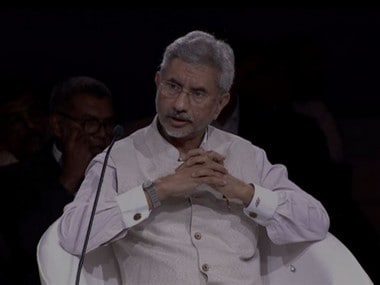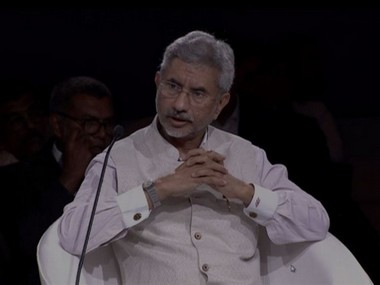In the winter of 1947, his soldiers locked in the savage fighting around Naushera and Jhangar, the gateways to the great Pir Panjal and into Kashmir, prime minister Jawaharlal Nehru wrote to governor-general Louis Mountbatten, laying out his strategic understanding of the war. “The invasion of Kashmir,” Nehru wrote, “is not an accidental affair resulting from the fanaticism or exuberance of the tribesmen, but a well-organised business with the backing of the State. We have in effect to deal with a State carrying out an informal war, but nevertheless a war.” Last week, External Affairs Minister S Jaishankar delivered a landmark speech, calling for “unsentimental audit of Indian foreign policy”. In essence, the minister’s case is this: from 2014, India has entered a new phase of engagement with the world, the sixth by his count. This phase has been characterised, among other things, by India’s “ability to shoulder greater responsibilities at a time when the world is more reticent”, and its unwillingness to “overlook the harsher realities of hard security.” [caption id=“attachment_7453781” align=“alignleft” width=“380”]  External affairs minister S Jaishankar at an interactive session of the World Economic Forum in New Delhi on Friday. ANI[/caption] Jaishankar’s speech has been hailed as a masterclass in foreign policy; doubtless, coincidentally, some of the most enthusiastic applause has come from New Delhi think-tanks that are direct beneficiaries of the Ministry of External Affairs funding. But masterclass it isn’t: a combination of historical half-truth and evasions, the resplendent robes in which Jaishankar dresses-up India’s new foreign policy are spun from the purest fantasy. The minister’s telling of India’s Pakistan policy is a useful prism through which to test his claims. There was, he claims, “little awareness in the 1950s that we were dealing with a battle-hardened neighbour to the North”. Nor, he claims, did India understand “the strategic significance of Pakistan-Occupied Kashmir”. “Due to that, we rarely prepared for security situations with the sense of mission that many of our competitors displayed”. “The early misreading of Pakistan’s intentions can perhaps be explained away by lack of experience,” he argued. “But the reluctance to attach overriding priority to securing borders even a decade later is much more difficult to justify.” For many in India, these arguments have helped explain the origins and course of the bitter conflict in Kashmir. The problem is, they aren’t true. Irrespective of his other failings, Nehru’s Boxing Day letter makes clear, he was under no illusions about Pakistan. Nor did he shy away from force. Faced with the use of Pakistani jihadi assets in 1951-1952, the prime minister mobilised Indian troops for a strike into Punjab—the earliest use of military coercion by the new nation. Inside Kashmir, Nehru’s hand-picked spymaster, the redoubtable Inderjit Singh Hasanwalia, fought secession with guile—and ruthlessness. Faced with his close friend Sheikh Muhammad Abdullah’s drift towards secession, the prime minister ordered his arrest, leading to decade-long incarceration. It’s true, as Jaishankar seems to suggest, that Nehru had no ambitions to retake Pakistan-occupied Kashmir. Every professional historian of the war of 1947-1948—Lieutenant-General LP Sen’s Slender Was The Thread stands out—concurs the fledgeling nation’s military didn’t have the cash or resources for protracted warfare. The reality was that India was only able to take back and hold Jhangar, the arterial axis to the Kashmir valley, because of heroic struggle by Brigadier Muhammad Usman’s 50 Parachute Brigade, which continued late into the summer of 1948. In Jaishankar’s view, though, Indian reluctance to use force “continued even thereafter”. “Thus”, he argued, “in 1972 at Shimla, India chose to bet on an optimistic outlook on Pakistan. At the end of the day, it resulted in both a revanchist Pakistan and a continuing problem in Jammu & Kashmir”. From declassified Central Intelligence Agency records we know this is, at best, only part truth. Talking to a still-unidentified intermediary on 10 December, 1970, prime minister Indira Gandhi made clear the Soviet Union was unwilling to support further operations in West Pakistan, fearing being drawn into a wider war with China. Indeed, her concern was that Pakistan would not cease hostilities, precisely to bring about that end. Indian negotiators were well aware, the historical record shows, that there were limits to what could be secured at Shimla—and the costs of holding out for their best-case, instead of taking what could be had. Prime minister Gandhi content herself with the realisation that India had emerged “the dominant power in South Asia and the Indian ocean”—one that China would have to respect, whether it wanted it or not. Inside Kashmir, her ends had been served, too: Pakistan’s intelligence services, fearing military punishment, cracked down on the Kashmir Liberation Front’s would-be terrorists at least as hard as India. Like everyone but critics possessed of time-travel machines, she had no way of knowing the Soviet Union would invade Afghanistan in 1979, sparking off a war that would prove a gift for Pakistan—enabling it to pursue its nuclear-weapons ambitions unhindered, and transfiguring its relationship with India. Seen through the external affairs minister’s eyes, India’s purported failures in Kashmir were part of a wider malaise. “We rarely prepared for security situations with the sense of mission that many of our competitors displayed. Discomfort with hard power was reflected in lack of adequate consultation with the military, most notably during the 1962 conflict." “The creation of the post of Chief of Defence Staff half-a-century later,” he asserts, “shows a very different mindset”. This is, sadly, public-relations copy, not considered analysis. First up, the facts sit somewhat uncomfortably with Jaishankar’s claims of a new Indian muscularity. Now running the lowest military budgets, as a percentage of Gross Domestic Product, since the war of 1962, India’s military modernisation is crippled. The scholar Abhijan Rej has demonstrated how the resource-choked military has fallen ever-more behind China; Walter Ladwig, in turn, has shown this anaemic force is profoundly unlikely to score decisive strategic victories over Pakistan. Even the Balakot air-strike was, to any dispassionate military analyst, at best a draw: though Pakistan learned cross-border terrorism might spark a war it cannot afford, it hasn’t been deterred from infiltrating jihadists into Kashmir, or using its conventional forces to provide logistical support for terrorism. There are other truths about 1962, too—among them, contained in India’s magisterial official history of the war, still an official secret but helpfully posted online for several years now. For all his manifest eccentricities, it argues, then-defence minister Krishna Menon was no unthinking dove, reluctant to use hard power. “The Indian Army fought like the British Army,” the history records, “unimaginative, elephantine, rule-bound and road-bound.” “Again, the Indian armed forces were dependent on imported arms and equipment”—a weakness shown up in stark relief in 1947-1948. Menon wished to change that and invested heavily in domestic defence infrastructure: Hindustan Aeronautics Limited, Bharat Electronics Limited and the Mazagon Dock Shipbuilders Limited were some of the outcomes. Lt Gen Daulat Singh was among the hard-headed military minds who argued it would be best to leave China in possession of Indian-claimed territory until this transition process was over, and border infrastructure built up—but Nehru, battered by nationalist opinion, would not listen to those counselling inaction. There was no reluctance in Indian policy headed into 1962, only recklessness. Like every prime minister, Narendra Modi has lived with these complex legacies and the contingent nature of history. No one but the professional courtier will pretend there was a drastic reversal of policy course in 2014; the prime minister’s reaction to Pathankot, after all, was to hug prime minister Nawaz Sharif even closer, not to use force. Nor is it that the use of force is new: cross-border raiding has been a part of the Indian Army’s arsenal for decades, authorised by governments of various kinds. Lack of nuance suffuses the minister’s speech: he speaks “the return of old empires like Russia, Iran or Turkey”, an extraordinary assertion to make given the ruinous crisis all three are mired in; he assails the “dogmas of Delhi”, without once telling us what they might be. It is, of course, inevitable that political cheerleaders will seek to cast their achievements in more roseate hues than those of others—but, as the foundation for serious analysis of where India is, and what it must do to head where it wishes, this will not stand.
The facts sit somewhat uncomfortably with claims made by S Jaishankar of a new Indian muscularity.
Advertisement
End of Article


)

)
)
)
)
)
)
)
)



